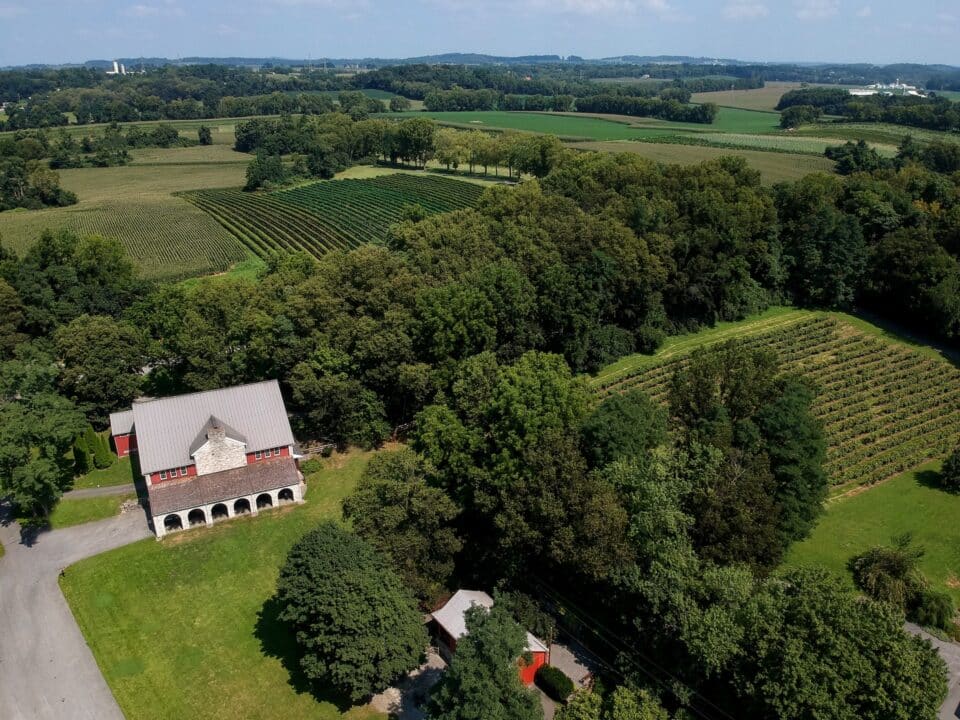It’s no secret that farming and agricultural work requires physically demanding, intense labor. There’s equipment to be operated, heavy objects to be moved and infinite other repetitive tasks that require walking, stooping, standing, lifting and pulling. The day-to-day operations of even the most mechanized farm still rests on the literal backs of farmers.
So, what happens to farmers with injuries, disabilities or long-term health conditions? For so many farmers, any interruption to their health, from a broken bone to an ongoing illness to a mental health struggle, can drastically impact their ability to keep the farm operating and make a living.
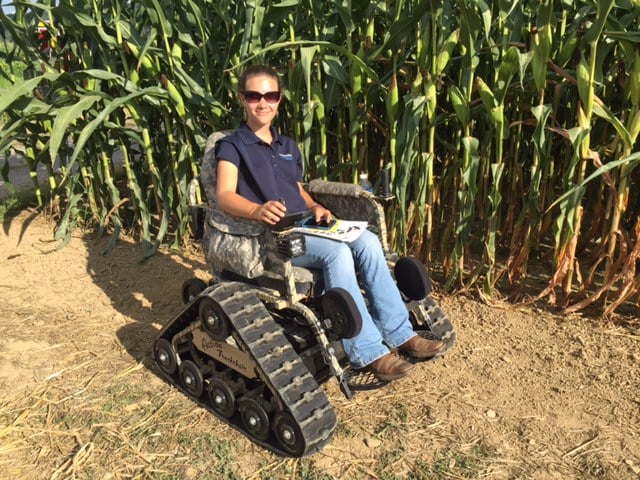
AgrAbility PA was created to address these exact scenarios, and to connect Pennsylvania’s agricultural community with resources, like assistive technology and services, that allow them to keep working. AgrAbility PA, which is part of the National AgrAbility Project, is a statewide partnership between Penn State Extension and UCP Central PA, and is funded through the U.S. Department of Agriculture and National Institute of Food and Agriculture. The PA chapter of this nationwide initiative was founded in 1996, and according to Abbie Spackman, AgrAbility PA’s Project Assistant and Case Coordinator, it’s currently funded through 2025.
Who is eligible for AgrAbility PA? Spackman explains: “It’s pretty basic! If you’re involved in agriculture, and you have a long-term health condition or disability that’s impacting you, you’re eligible.”
About 50% of the farmers AgrAbility PA works with were injured on the farm, about 25% were injured off-farm and 25% face chronic conditions that are not-incident related. The majority of the individuals are older (50+); the oldest current client is 80 years old.
“As the farming population increases, we’ve seen a demand in need,” Spackman says. “We talk to a lot of folks in agriculture who don’t apply because they think their issues are just related to age; they’ll say it’s ‘just arthritis,’ even though that’s a serious illness and disability that makes them eligible.”
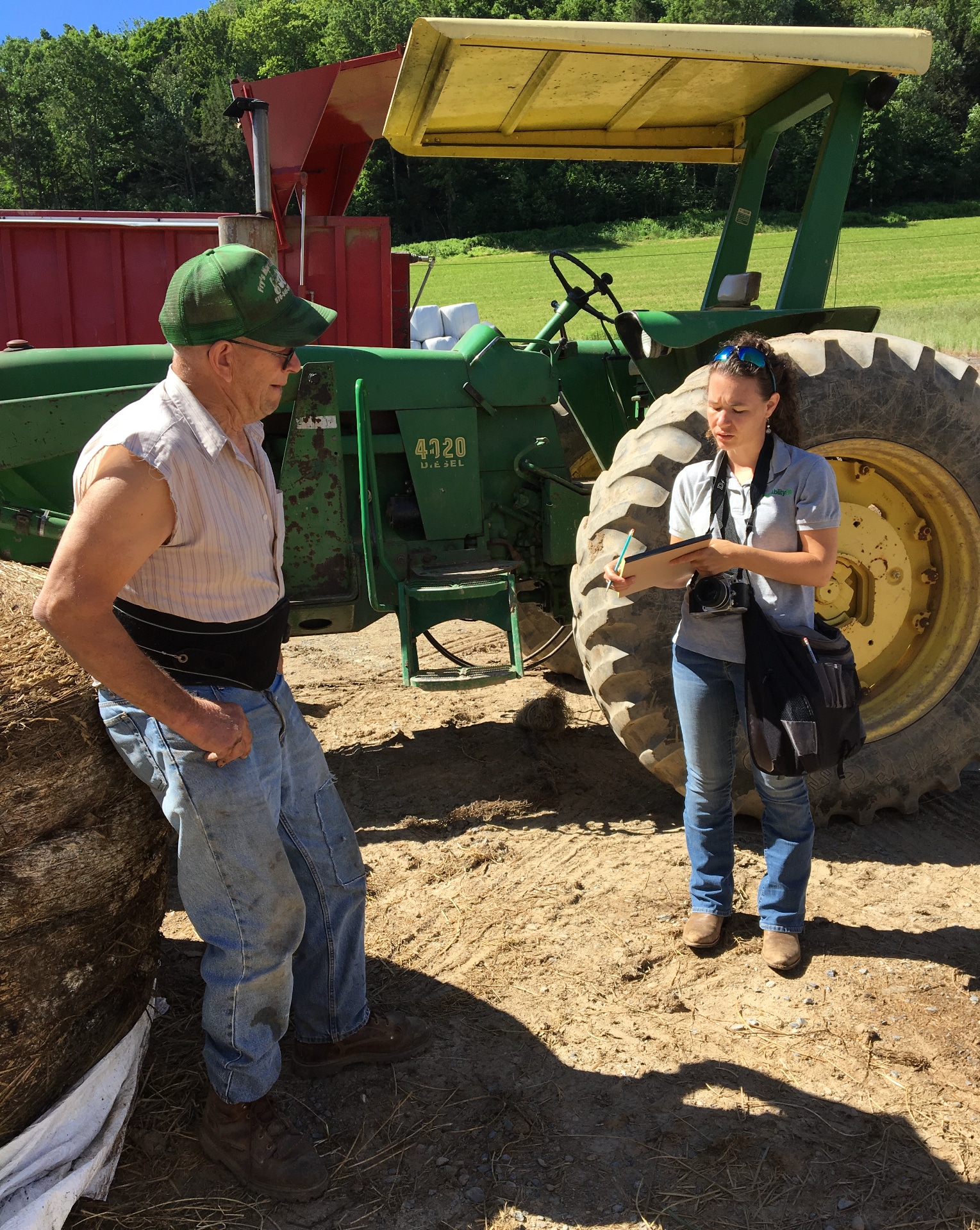
Abbie Spackman, AgrAbility PA’s Project Assistant and Case Coordinator, on a farm site visit
Spackman’s role is to travel around the state and meet one-on-one with farmers who’ve contacted AgrAbility PA, and create individual plans for them based on their specific types of farming, disability, and goals. She has a background in agriculture (she grows heirloom pumpkins in Centre County; read more about that here), which helps her quickly connect with the farmers she visits, many of whom are in precarious situations.
“Because we have a lot of small family farms in PA with just one or two people working on the farm, the concern is not only that they’ll lose their job, but lose the whole family farm,” Spackman shares.
Spackman is quick to point out that AgrAbility does not give direct financial assistance to farmers. What the program does is help farmers navigate other programs and initiatives that can provide what they need.
“One way that I explain our program to farmers is to have them think about us like a crop consultant, agronomist or veterinarian — more along the lines of a consultant that can show them how to continue farming with their current abilities,” she notes. “Oftentimes when farmers are so close to the problems, and injured and frustrated, they can’t see easy solutions.”
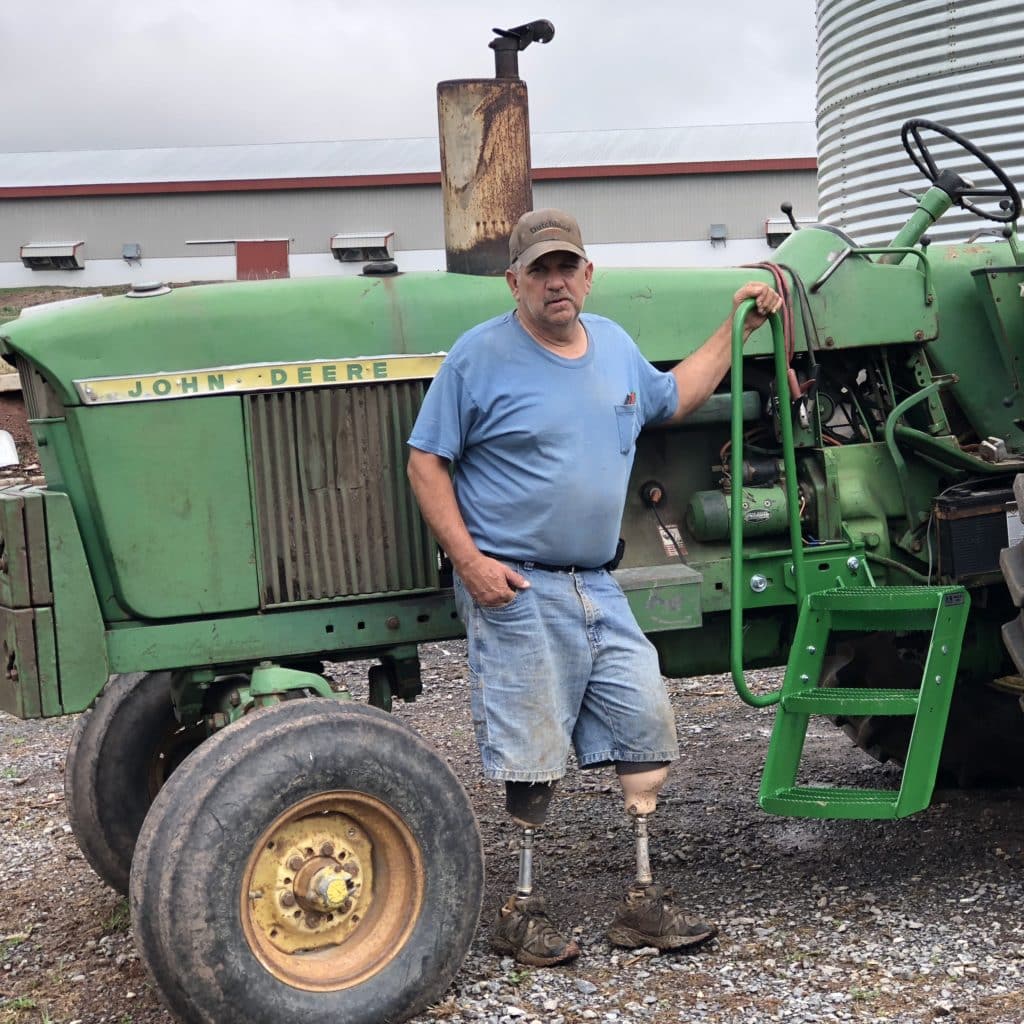
AgrAbility PA can often identify programs to pay for accessible equipment. For instance, if a farmer was injured and had a leg amputation, AgrAbility PA makes recommendations on installing extra steps that could make getting in the tractor easier; for someone in a wheelchair, it might connect them with vendors and apply for funding, like grants or no-interest loans, for an accessible lift and accommodating seat for their tractor.
“AgrAbility is like a translator: we bring the agricultural knowledge to help vendors understand what the farmers need, and help the farmer navigate their process,” Spackman says.
One great example of this is Dawn and Rob Custer who own and operate Goodness Grows, an organic vegetable farm in Bedford County. After sustaining a serious head injury in 2012, then dealing with all the complications of post-concussion syndrome, Dawn received a rheumatoid arthritis diagnosis. At a loss about how to continue working on the farm with these conditions, the Custers reached out to AgrAbility PA. After a farm site visit, the Custers were connected with an occupational therapist and farm coordinator who helped uncover the limitations of Dawn’s day-to-day work on the farm.
Through their work with AgrAbility PA, the Custers received information and recommendations on assistive technology for Dawn. The Pennsylvania Office of Vocational Rehabilitation provided the family funding which was used to acquire four pieces of equipment that changed everything for Dawn: a Pendragon work cart, a sit-and-scoot garden cart, a tractor pull-behind Eco Weeder and a John Deere gator utility vehicle for hauling produce crates.
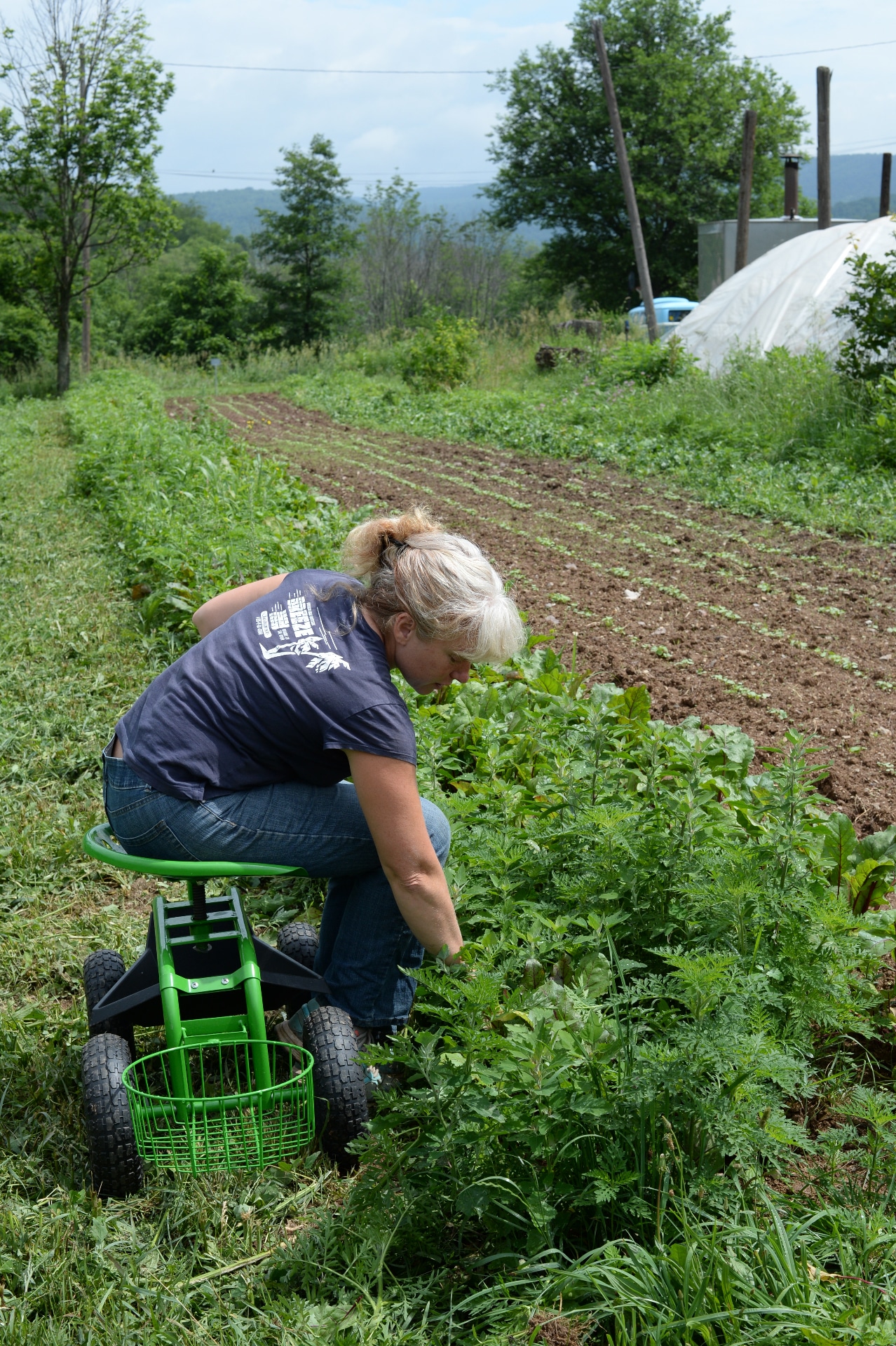
Dawn Custer using her sit-and-scoot garden cart
AgrAbility PA works with issues that extend beyond physical injuries and ailments. Its definition of “disability” is broad, Spackman notes, and can include cognitive issues, like depression or Post-traumatic stress disorder.
“The key question is: does it impact your work in agriculture?” Spackman reiterates. “We’ve talked with farmers who are veterans struggling with PTSD and can no longer go to farmers market and interact with people, and so we have conversations asking, do they want to hire someone, do they want to look at selling online? We’re really coaching, or consulting them, on thinking through what some solutions might be.”
Spackman and her colleagues take a holistic view of what resources a farmer might need. Depending on each individual’s situation, this might mean home modifications or a mental health support group.
What’s most important, she says, is that farmers who are facing any health condition or problem that’s effecting their work contact AgrAbility PA right away.
“Farmers often don’t like to ask for help, so usually and unfortunately by the time they reach out to us, it’s because they’re desperate to continue farming and save the family farm, and feel like they have no options,” Spackman says. “AgrAbility PA is here to work to the best of our abilities to connect them with as many resources as possible.”
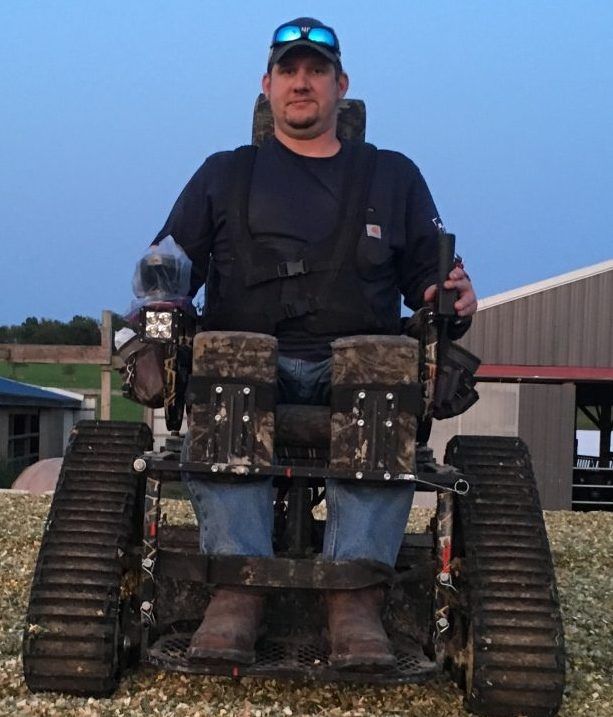
To learn more about AgrAbility PA and read more success stories, visit its website.
- Photos: AgrAbility PA

